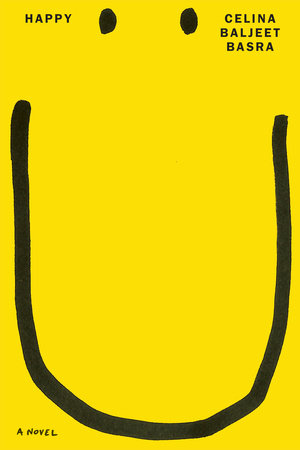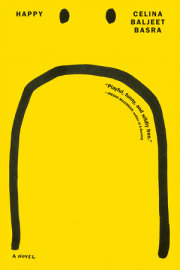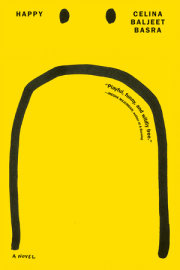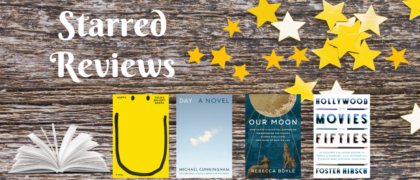"The setup is familiar, but Basra makes it new . . . Basra is making a magnificent attempt to help us understand the mixture of optimism, self-defense, hope and delusion that Happy needs to make the monumental choice of whether or not to leave his home, move to a faraway place and face all the deceptions and misery that might await. By fragmenting the picture, and by playing with voice and structure, Basra invites us to experience Happy’s emotional journey at its most unfiltered, intimate level. She’s thrown away conventional narrative, and the outlandish chaos she creates conveys both the exuberant folly and dream-fueled logic that lead Happy to act."
—Kathryn Ma, The New York Times Book Review
"Basra has a penchant for surrealism. Happy in many ways resembles the ingenue at the center of Yoko Tawada’s dreamlike novel “The Naked Eye,” a film-obsessed Vietnamese abductee in Paris. Basra’s plot by contrast, calls to mind Nabarun Bhattacharya’s cult classic “Harbart,” a tragicomedy set in Kolkata that begins and ends with the death of its titular character . . . As the work wears Happy down, his optimism grows more complex, transforming into a kind of empathetic, almost critically conscious hope . . . a sobering reminder that stories about individual heroism can divert focus from the exploitative conditions that compel them to act in the first place. Tragedy, on the other hand, does not obscure the power of the hero’s adversaries. Instead, it renders this power unmistakably visible. For Basra, tragedy also highlights the value of the simple needs and pleasures imperiled by criminal labor practices."
—Jenny Wu, The Washington Post
★ "Happy’s singular voice echoes long after the close to this striking story."
—Publishers Weekly (Starred Review)
★ "First-time novelist Basra delivers a damning indictment of capitalism, a system that swallows the global poor whole and spits out wasted humans. At the same time, Basra maintains a light touch; the novel wears its burdens with good humor."
—Poornima Apte, Booklist (Starred Review)
★ "In a very timely manner, Basra makes a potent point about how undocumented workers are frequently abused both economically and physically . . . The humanity underpinning Happy’s story will speak to anyone with a heart and a dream."
—Thane Tierney, Bookpage (Starred Review)
"A zany comedy about human trafficking? This novel is genius . . . strange and superb . . . radiant and exhilarating . . . The achievement of Basra’s prose is that this arc neither exploits Happy nor the reader. We might look back to Happy’s own beloved era of cinema for forerunners who dance to the beat of a different drum, outsiders who insist a better world is possible, protagonists who, if fantasists, possess the resourcefulness to survive a brutal and callous world. We can claim that we respect the humanity of the dispossessed, the exploited or the systematically oppressed, but to recognise it in fiction, as Basra has, takes this level of depth and artfulness. Despite the devastating conclusion, this is not so much a tragedy as a weaponised comedy. Politically, it’s an essential novel, with an urgency that avoids the didactic – preaching neither to the converted nor the apostate."
—Luke Kenndard, Telegraph (UK)
"One of my favorite novels of the year, a book that redefines the coming-of-age story with empathy and grace."
—Largehearted Boy
"Through several vignettes from the point of view of Happy Singh Soni, we follow him from a small village in India, dreaming of life as an actor and filmmaker, to Italy where he works as a migrant worker. This book is at once delightful and also heartbreaking and beautifully constructed. Happy is a narrator who I’d spend many more pages with if I could."
—Annie Tate Cockrum, Bookseller at First Light Books
"An eye-opening, sophisticated work, [Happy] manages to be both brilliantly funny and intensely heartwrenching as it throws light on the darkest part of our society."
—buzz mag (UK)
"Playful, funny, and wildly free, Happy inhabits the seam between beauty and tragedy. A miraculous novel."
—Megha Majumdar, Whiting Award winner and bestselling author of A Burning
"A bonkers story that reads like a fine ten-course meal."
—Gary Shteyngart, author of Our Country Friends





